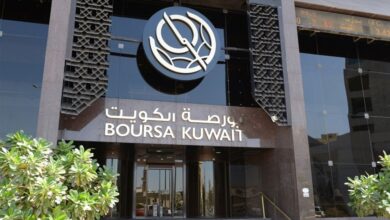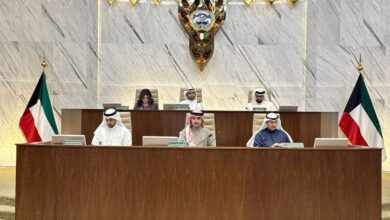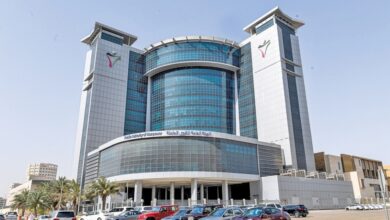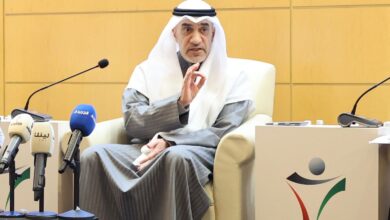
-
Kuwait is facing mounting pressure on its public finances due to falling oil revenues, rising spending commitments, and a struggling non-oil sector.
-
Despite falling revenues, government spending rose 13% to KD 25.2 billion, with KD 20.4 billion for wages and subsidies and only KD 1.9 billion for capital expenditures.
-
Kuwait Oil Company discovered 2.1 billion barrels of light oil and 5.1 trillion cubic feet of gas in the Al-Nokhatha field, but the impact on the economy will be limited due to OPEC+ production caps.
A new report highlights that Kuwait is facing rising pressures on its public finances due to declining oil revenues, increased spending commitments, and a weak non-oil sector, according to Al Qabas newspaper.
The report published by MEED magazine highlighted that the financial deficit is driving Kuwait towards reforms due to a decline in oil revenues.
It noted that the main cause of the recent budget deficit is a 19% drop in oil revenues to KD 21.5 billion, while non-oil income rose by just over 1% year-on-year. However, at only KD 2.1 billion, non-oil income remains a minor component of state finances.
The report also pointed out that “despite the decline in total revenues, government spending increased by about 13% to KD 25.2 billion. Of this spending, KD 20.4 billion was allocated to public sector wages and subsidies, while capital spending amounted to only 8% of the total, or KD 1.9 billion.”
Positive signs
MEED noted some positive signs. Annual inflation fell to 2.8% in June, its lowest since November 2020, driven by lower prices for food, housing, utilities, and transport. British consultancy Oxford Economics expects inflation to stabilize, with a growth forecast of 2.9% next year.
Meanwhile, Kuwait Oil Company announced a major discovery on July 14, finding an estimated 2.1 billion barrels of light oil and 5.1 trillion cubic feet of gas in the offshore Al-Nokhatha field. However, additional oil reserves are unlikely to significantly alter the country’s economic climate, especially with production levels capped under the OPEC+ deal.
Need for more fundamental change
MEED noted that the government has acknowledged the need for more fundamental change, with the finance minister previously indicating that increased efforts will be made to control spending.
The finance ministry has set spending at KD24.5 billion for the current fiscal year, against revenues of KD18.9 billion, resulting in a deficit of KD5.6 billion. The finance minister stated that the government aims to maintain spending at this level until 2027/28.
MEED also highlighted that Kuwait may now consider following most of its Gulf neighbors in imposing a value-added tax, more than six years after the UAE and Saudi Arabia implemented it. Alternatively, the government could explore other measures, such as a corporate income tax or taxes on tobacco and sugary drinks. Such actions would significantly boost non-oil revenues.
It added that the success of reducing spending in the coming years will also depend on a recovery in private sector activity, including the creation of more job opportunities.












